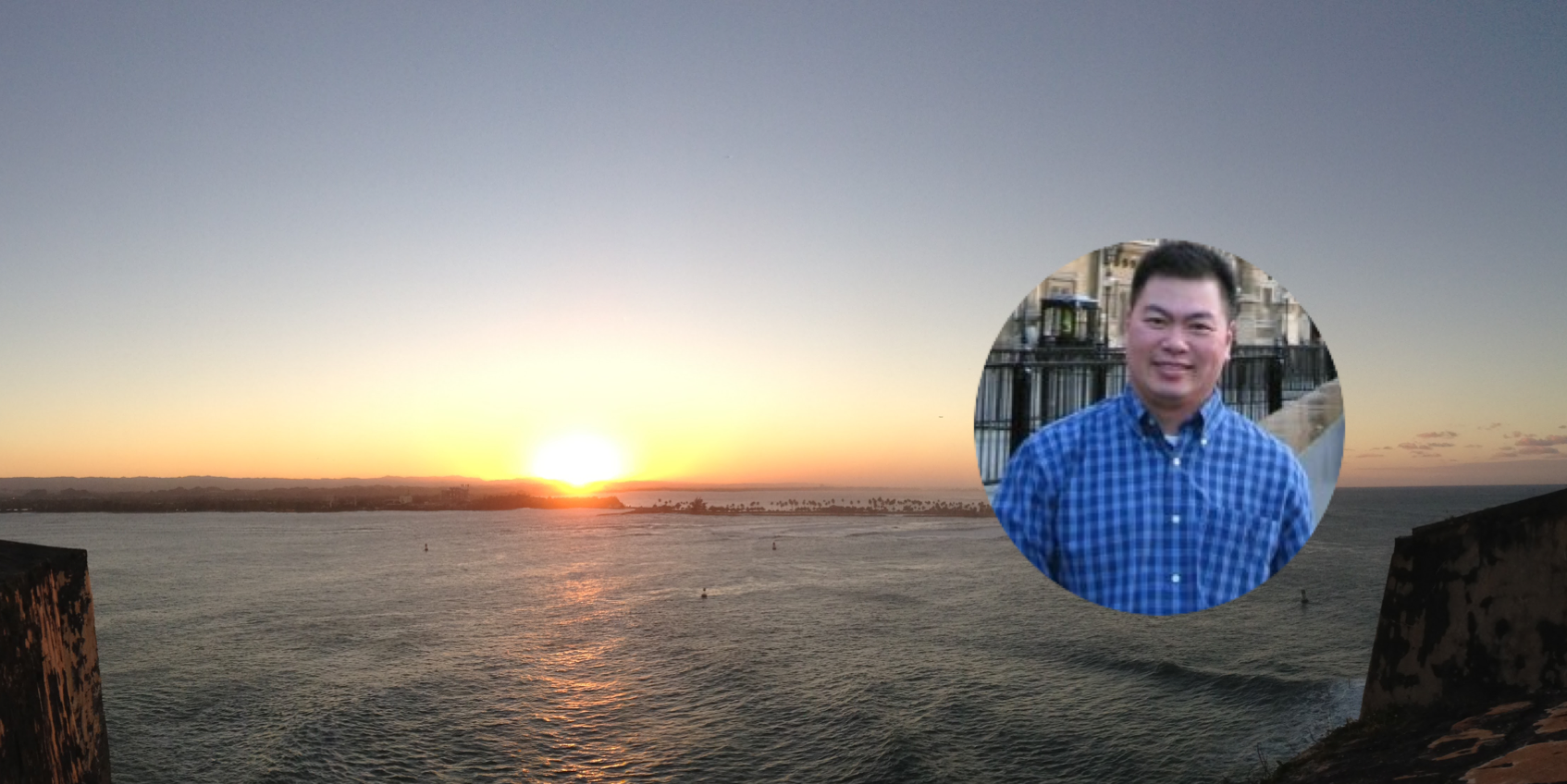
Gunawan Herri, VP of Engineering @ DomainTools
 Impactful Engineer shares the stories and journeys of women and men who are making a significant impact in the software industry. The purpose of Impactful Engineer is to inspire young software engineers to see that there are many paths they can take to move forward in their careers and grow their impact wherever they work.
Impactful Engineer shares the stories and journeys of women and men who are making a significant impact in the software industry. The purpose of Impactful Engineer is to inspire young software engineers to see that there are many paths they can take to move forward in their careers and grow their impact wherever they work.
[beautifulquote align=”full” cite=””]1. Find a good mentor. Learn continuously.
2. Never give up and BE nice.
3. Wake up early and try to do more stuff in the morning.[/beautifulquote]
LinkedIn Profile: @gunawanherri
Interview By Tony Tam | Join impactfulengineer on Slack to connect w/engineers.
I remember Herri as a key connector for our team of 7 engineers in the 1996 to 1999 time frame when we worked at Silicon Graphics, Inc. (SGI). We were building X11 Motif tools that shipped with every SGI machine to collect customer warranty information, diagnostic data, electronic call logging, patch tools and customer data management.
During lunches with the team, he always pushed us to try out different ideas. I remember him leading technical discussions, reaching out to the team to offer help and a very positive force to have on our team. He showed genuine interest in knowing and caring about his teammates both in their personal lives and life at work. I’m not surprised at all to see him in a leadership role now and his investment in mentoring.
Questions & Answers
Q: How do you know Tony?
A: I know Tony through our tenure together at Silicon Graphics, Inc. He and I are colleague as software engineers at that time.
Q: Where do you currently work and what your current role is within the company? What scope of impact do you have within your organization?
A: I just left my job as CIO and VP of Technology at a mid-size company. Before that, I was CTO and SVP of Technology.
In the last three jobs, I was a member of Executive Leadership Team. I managed the whole engineering team and full control of day-to-day operations from budget, architecture and hiring/firing decision.
Q: When did you get started with computers? Do you remember your first computer? Could you give us a history of how you got to where you are today?
A: I was always interested in the STEM (Science, Technology, Engineering, and Mathematics) subjects and computer since middle school. My home town in Indonesia happen to be the central place for oil and gas companies (Chevron-Texaco). They have computers and mainframes and I happened to know a mentor who was kind enough to teach me about computer related matter. I started my career as software engineer in Silicon Valley and follow the path of technical lead, engineering manager. I then took my MBA and pursue some product (program) management type of work at Microsoft before joining a few mid-size companies as their executives.
Q: What does a typical day at work look like for you and how do you stay on top of everything that is asked of you?
A: I try to keep a comprehensive to-do list for myself and encourage my direct reports to do the same thing for our 1-on-1. Much of my time is consumed either by fire-fighting, planning or strategizing with my fellow Engineer Leadership Team or direct-reports.
Q: What computer language have you used at work in the last 10 years, and which language do you use for personal projects? If they are different languages, could you explain why?
A: In the same last 10 years, I’d say Java, Ruby on Rails (RoR), PHP. Many developers and companies seem to enjoy RoR nowadays. There are other languages sprinkled in there such as Python for Machine Learning (ML) related deliverables.
Q: What website, tools, apps do you use on a daily basis help you be more productive and more informed?
A: Collaboration tools in general, such as Atlassian Jira/Confluence. Communication tools such as Flowdock, Slack, or Skype. I also use any tool to keep track of my personal to-do list.
Q: Who was the best manager you’ve ever had and why?
A: One of the best managers that I have had is Dirk Dougherty at Commerce One. He’s very down-to-earth, supportive, positive-reinforcement (rather than stick), ready to provide mentorship. I try to emulate this management style whenever I go, particularly on the mentorship.
Q: Who has helped / mentored you and has made the biggest impact on your career? What did you learn from this person that you still carry with you to this day?
Aside from Dirk Dougherty at Commerce One (in an earlier answer), I also had a great mentor named On Lee (he used to be a director at Microsoft). I learn to connect with each team member individually. Make each of them successful and mentor them (many times it’s not technical issue at all but personal, such as I’ve done engineering and I want to try management. Can you guide me how to get there?)
Another lesson is to keep up with knowledge and technology and honestly I’m not doing well on that front at all…
Q: Which team was the best team you were on and why?
A: I had a really good time with my team at Commerce One. We’re tight-knit team. We went through very good and very bad together but we also do it as a team. Team members just work together for a common purpose. Love it.
Q: Which project are you most proud of and why?
A: Again, at Commerce One where we needed to deliver enterprise-quality B2B platform. We went through tight deadlines and many distractions, but we did make it.
Q: How do you prepare for meetings and how do you successfully run meetings? What patterns of behavior do you wish junior engineers would do more of? Less of during, before and after meetings?
A: A few things I try to do for my meeting:
- Make it short, 30 minutes if possible. Does it need a meeting or an e-mail will suffice?
- Make sure the invitees are appropriate
- Make sure that the agenda and goal are clear and set
- Make sure we have some action items out of it
Q: If a software engineer came to you and asked for advice on increasing their impact and getting promoted, what would you say to them?
A: It’s all about solving business problems by providing values. Our values as engineers are to use technology to solve those business problems.
Q: What advice would you give to a smart, driven engineer zero to three years out of college? What advice should they ignore?
A: Learn about how to collaborate, learn how to understand business problems itself. Ignore advice that you MUST use technology x, y. z. Those technologies change all the time. Always use the right tools to solve the problems.
Q: What blogs, newsletters, GitHub repos, podcasts, conferences, and websites do you regularly read/attend in order to stay ahead of the changing landscape?
A: I personally use TechCrunch and Geekwire. I know my team used Stackoverflow quite a bit. I found Amazon ReInvent conference to be useful.
Q: Thinking back on your career, what do you think has helped you personally grow your impact in the various stages of your career?
[beautifulquote align=”full” cite=””]1. Find a good mentor. Learn continuously.[/beautifulquote]
Q: Do you have any advice on how to effectively mentor someone through their career? What does a successful mentor / mentee relationship look like?
A: Mentor should try to understand what motivates the mentee. Ask hard questions of what they really want. After identifying of what they need, connect them with someone who can help them or guide them of how to acquire those skillsets.
Q: Is there anything that hasn’t been mentioned that you think is relevant to helping other engineers increase their impact? If so, what?
A: The ability to work with other disciplines are very important. Always put customers need ahead of engineering complexity.
The following questions are from Tim Ferriss’ book Tribe Of Mentors.
Q: In the last 5 years, have you adopted any habits or rituals that make you more impactful?
A: I like to read and try to be curious.
Q: If you could have a gigantic billboard anywhere with anything on it — metaphorically speaking, getting a message out to millions or billions — what would it say and why? It could be a few words or a paragraph. (If helpful, it can be someone else’s quote: Are there any quotes you think of often or live your life by?)
[beautifulquote align=”full” cite=””]A: Never give up and BE nice.[/beautifulquote]
Q: What is one of the best or most worthwhile investments you’ve ever made? (Could be an investment of money, time, energy, etc.)
A: I always feel the time I invest for my mentees worth every single penny and second!
Q: In the last five years, what new belief, behavior, or habit has most improved your life?
[beautifulquote align=”full” cite=””]A: Wake up early and try to do more stuff in the morning.[/beautifulquote]
Q: In the last five years, what have you become better at saying no to (distractions, invitations, etc.)? What new realizations and/or approaches helped? Any other tips?
A: I try to separate needs from wants.
Q: When you feel overwhelmed or unfocused, or have lost your focus temporarily, what do you do? (If helpful: What questions do you ask yourself?)
A: Prioritize my work.
Q: What is the book (or books) you’ve given most as a gift, and why? Or what are one to three books that have greatly influenced your life?
A: My goodness. I always feel like my first C reference book is a classic. Short and sweet. Also Good to Great by Jim Collins.
Q: Who else should I interview?
A: Muljadi Sulistio and Pamela Chan and Sue Liu (Tony & Herri worked with them in SGI)
Q: And finally, the question I didn’t ask you. What lesson learned from your past experience that you either will emphasis/encourage or avoid?
A: For engineers who loves new shiny toys and new technology, make sure you understand how new approach solve business problems and don’t use new tech just because it’s “hot”. Open your mind about various technology stacks (both open source and proprietary such as Microsoft).
Get close to your customer base as close as possible. Ask your PM to join them during customer calls. Talk to customer support folks about common issues that real customers are facing. When you implement a feature, make sure you understand why (such as how the result from this module is going to be consumed? Which other module will consume it? What is the end-goal?).
Q: Was there any particular turning point or decision in your career that changed the trajectory of your career path? Tell us more about that.
A: I decided to take MBA and do some product management in addition to just engineering track. IMHO (In my humble opinion), the blend between business/strategy and technical skills help me in pursuing a C-level career. Doing some technical program management is a great litmus test that an engineer can do if they want to taste the business side.
—–
This interview was conducted with Gunawan Herri in January 2018. The questions were answered via email and clarified via LinkedIn messenger and final editorial cleanup by Hunter S.
